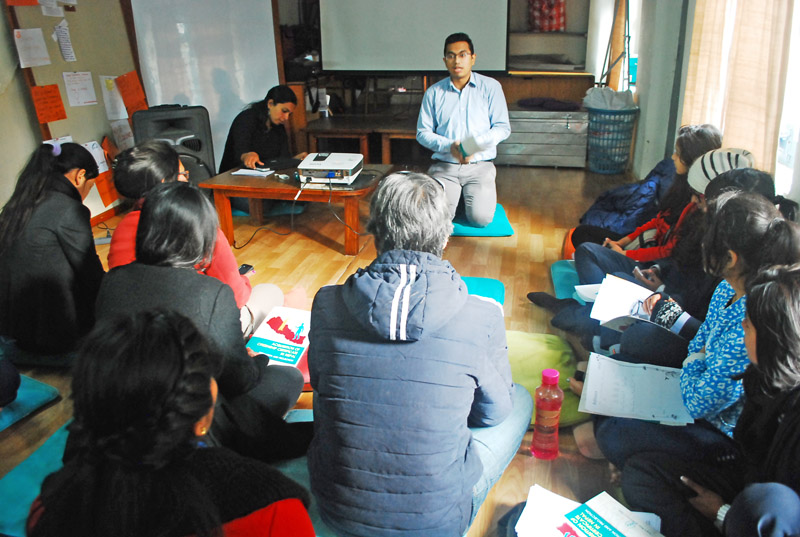Woes of citizenship continue
KATHMANDU: Films are one of the best mediums to disseminate information or spread awareness among the mass. Thus, Voices of Women (VOW) Media organised an event Feminist Film Screening, which is the third edition. In the event the documentary Anagarik (Non Citizen), produced by Forum for Women, Law and Development (FWLD), an organisation working in human rights, was screened on January 14 on the premises of Women Lead, Jawalakhel. The screening was accompanied by a discussion session with Subin Mulmi, Lawyer at FWLD.
Twenty-two-minutes long Anagarik showed the difficulties of four women while getting Nepali citizenship for their children. The first woman’s husband is in Nepali Army and disappeared without any contact with the family. Now that woman is not being able to get citizenship for her children who are adults and want to work in India. Then there is another woman who married an Indian and has two daughters. She stayed in India for 20 years working in a circus, with the demise of her husband she returns to Nepal. She does not have Indian citizenship, and as she lives and works in Nepal, she seeks for Nepali citizenship, but in vain.
The documentary deals with the issue of inequality between men and women in Nepal. It shows how our Constitution has failed to give equal rights to women in our country. It has showed woes of women who need to provide verification of their husbands’ nationality, or provide proof of their child’s father’s nationality to get the child’s citizenship whereas men do not need any proof from anyone.
In the discussion with Mulmi, the audience asked questions related to citizenship by descent, naturalised citizenship, and about citizenship of those whose both parents have died but are living in Nepal, confusing and conflicting article in Nepali Constitution related to citizenship and more.
Maya Bodhi, a participant at the event, expressed, “I am looking forward to getting a citizenship, but to this date I have not been able to get one, because I don’t know about my parents.”
Since the age of five she was a household worker. She got divorce when seven months pregnant. “My daughter now is six years old and I have not been able to get my citizenship from my husband. And the people I worked for have declined to verify the fact that I have been living in Nepal since my childhood.”
Now attending the event “has given me a hope that I will be able to get my citizenship”.






